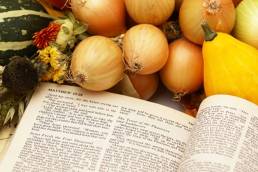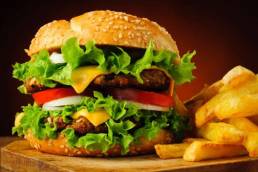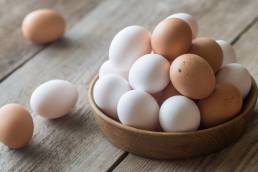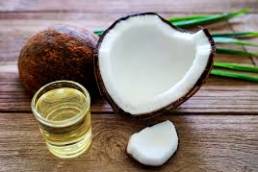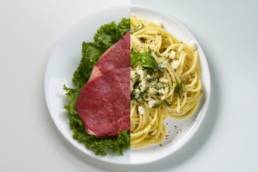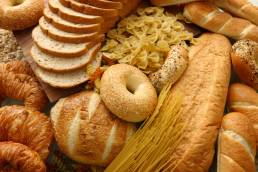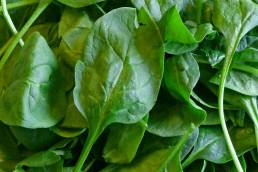7th August 2017
Mastering Your Mindset Volume 1: Can your lunch really effect your performance?
Before you delve deep into this blog, this certainly is not another lambasting article on carbohydrates. I am a big fan of carbohydrates, I don’t advise massively limiting them unless you want to and I believe fat loss can occur just as quickly as someone who is on a low carbohydrate diet. When I say believe, I mean it’s a fact, I know it can. Adversely, I completely appreciate how going ‘low carb’ for a weight/fat loss goal can be a quick and easy fix. Removing a macronutrient that is often anywhere from 30 to 55% of most people’s diet will inevitably incur weight-loss. It’s not rocket science. Achieving fat loss/weight loss (I use the term weight loss loosely) on a balanced nutritional diet is the ultimate long term goal. Up on the next blog i'm going to look at how to manipulate energy balance (energy in/energy out) if your goal is to lose weight.
Anyway, let’s look at what a carbohydrate is, then following on from that how our bodies react when you eat it and whether this reaction can have a direct impact on concentration and performance at work.
Carbohydrates are sugars that are broken down inside our bodies to create glucose. This is then transported around our bodies and used as a primary source of energy, as well as our muscles and other essential cells utilising it. To regulate the glucose within our blood, insulin and glucagon are produced from the pancreas. When a carbohydrate is consumed blood sugar levels increase which is when insulin is secreted in order to manage this.
Your typical carb can range from potato, rice, wheat, bread to vegetables and to the slightly more addictive foods such a chocolate and sugary sweets. Unfortunately its the best tasting food, for me anyway.
So, is there a link to this decrease in blood sugar after eating a heavy carb lunch some hours after to that afternoon slump that I know so many people struggle with? Possibly. Individually we are all so different and I’m sure many can have a heavy carbohydrate lunch and feel fine throughout the entire afternoon as much as I am sure some would struggle and not be able to identify why. Couple this with a sedentary job an 8 – 12-hour work day and it might be worth addressing if you do find yourself going into the office kitchen a couple of times during the afternoon.
A couple of factors to consider. Firstly digesting your food. The food you eat for lunch diverts blood away from the brain to help with the digestion process. Also feeling particularly full isn't massively conducive for a working environment. Your body will also release melatonin which is a hormone that aids sleep.
To avoid such extreme high lows, opt for a higher protein & fat based diet. Carbs don’t need to be completely avoided but might be worth trialling. Some additional steps I would take;
- Eat Breakfast and look at how nutrient dense your breakfast is
- Reduce caffeine consumption
- Drink water (mild forms of dehydration can trick the body to thinking its hungry)
- Get a good nights sleep aim for minimum 7 hours sleep
- Look at what you’re eating the evening before
Below two very popular eateries within 100m from where I work. Itsu and Wasabi both offering not to dissimilar types of foods. Here I have compared two dishes from Itsu and a very popular lunch option from Wasabi. Il also add it was quite difficult finding nutritional information on Wasabi and was very surprised to find out the Katsu Curry potentially surpasses 1000 kcals of which I am very sure Mr Smith who east it a couple of times a week has no idea of.
Low Carb – Itsu
Mixed Sashimi
385 kcal / Pro 43.5g / Carbs 4.3 / Fat 3.9g
Veggie Threesome
109kcal / Pro 1.9g / Carbs 16.9g / Fat 3.5g
Total: 494 kcal / Pro 45.4 / Carbs 21.2 / Fat 7.4
High Carb – Wasabi
Chicken Katsu Curry
1142 kcal / Pro 41g / Carbs 165 / Fat 35g
Total: 1142 kcal / Pro 41g / Carbs 165 / Fat 35g
12th July 2017
Fat Loss Food for Real People Volume 1: The 6 Commandments
Fat Loss Food for Real People - The 6 Commandments
One: Green is God
Make greens/vegetables the foundation of your diet. Do you best to make sure they are a part of every plate you eat. Another point, you would have to eat half a kilogram of asparagus to ingest the same amount of carbs as you get in a single whole meal pitta bread.
Two: Protein with EVERYTHING
Protein will be one of the most important components of your diet and when you eat a high protein diet you're generally less hungry, eat less and lose body-fat as a result.
Three: Fat is your Friend
Fat will not make you fat. Eating too much will. In fact good quality fats are important if you want to build muscle and burn body fat because the macronutrient plays a number of roles in energy expenditure and vitamin storage.
Four: Eat Real Food
An essential RULE. Follow the guidelines the best you can to eating food that once grew out of the ground or had a face.
Five: Alcohol
Alcohol along with rule 5 also play an important role. Rather than completely eradicating this from your diet, you will need to make a conscience effort to reduce your alcohol intake. It not only inhabits your ability to build and repair muscle, but can be hugely calorific. There are roughly 200 calories in a pint of lager. 3 pints = 600 calories approx. If you’re trying to lose body fat then 3 pints will equal around a ¼ of your total daily calorie intake.
Five: Sugar
Again calorie packed, taste good but provide the body practically nothing nutritionally and I have never known a packet of Revels or a Chocolate Muffin to completely satisfy satiety. Revels, 35g bag = 168 calories. A medium sized white potato weighing over 200g contains less calories and more likely to fill you up. That’s almost 6 times more in grams and still less calories. Options – sugar cravings are perfectly normal and there are plenty of low calorie sugary foods out there.
11th August 2016
Sustainable Dieting…
Paleo, Low Carb, High Protein, Keto…and so the list goes on and on. Why is it however that you don’t read much about ‘Flexible Dieting’? Its an approach I take and its an approach I prefer my clients to take. I have seen great results from it – as have my clients and what’s more important my relationship with food is great and I don’t go to sleep at night wondering if I deserved that surprise cheat meal. Anyway ‘cheat meal’ what is that. We will save that for another day.
Flexible dieting for me is not limiting a particular macro, removing a food group or telling myself I can’t or shouldn’t eat something. Of course there does need to be common sense here, eating 10 mars bars all day isn’t at all nutritious but if I want one whose to say can’t I have one??? The industry frowns upon this kind of language.
Our relationship with food needs to change, as does our knowledge. Fundamentally every diet that you try, or we read about all have one thing in common. They put you in a caloric deficit. Low carb – its just a deficit. Of course I’m not saying going low carb doesn’t have its benefits but ultimately low carbs equal less calories.
Extreme calorie cutting be it in the form of a shake dieting or a huge calorie deficit isn’t sustainable. The other extreme I see is under eating with a proportion of calories coming from alcohol consumption which not only disrupts us hormonally it also has a negative impact on metabolism.
A few simple tips. Food labels – they will provide and calories and nutritional values. Keep an eye on sugars. Sugary foods will generally be higher in calories. Portion Control – Assess the actual serving sizes of your foods. Don’t pack all your calories into your evening meal. Output – I’m only touching on this as im focusing here more on the nutrition side. Its super simple, increase your put, burn some calories, go for a walk and move more. Your body will thank you for it.
1st July 2016
The Egg Explained
There is certainly a mythical stigma surrounding eggs and there supposed positive and negative benefits to our health. Fear not, the egg is our friend.
Eggs are a fantastic source of protein providing us with nutrients that help stimulate the brain, to easily digested amino acids and other vitamins that assist with our wellbeing.
Eggs have the second highest concentration of Leucine which is the most important amino acid for building muscle. Not only are they great for assisting in the building of muscle, the amino acid profile eggs contain aids in the preservation of promoting bone health.
Furthermore - they're cheap and readily available.
24th February 2016
The Benefits Of Coconut Oil
Coconut Oil may be one of the most misunderstood of the more readily available dietary fats/oils.
The main difference between coconut oil and other forms of saturated fats and triglycerides is the much shorted length pf the fatty acid. Coconut Oil is actually a medium chain triglyceride (MCT), 6 to 12 carbon lengths long. This smaller chain length makes it much easier for the body to absorb, digest and process as its breakdown requires less energy and less enzymatic action that what is usually needed for the longer chain triglyceride.
Once broken down into medium chain fatty acids and absorbed in the body, they are then delivered to the liver where they are used as a primary source of energy, which in turn leads to an increase in metabolism, ultimately resulting in an improvement in blood lipid profiles.
Interestingly in eastern Asian cultures where coconut oil is a significant source of fat, rates of atherosclerosis and coronary heart disease are lower than their western counterparts.
Coconut Oil contains high levels of antioxidative compounds which help protect it from oxidation and degradation. Coconut oil has been proven to improve levels of testicular antioxidants, thus suggesting a protective role in reproductive health and increased levels of testosterone.
Furthermore, supplementation of the oil has also led to a significant improvement in bone density, volume and structure.
20th August 2015
Nutrition for the City Worker
For most, Fat Loss is the most common goal in the Health & Fitness industry. It’s not surprising given the poor information the general public are subjected too, from the print press we read to the online health and fitness apps which also contain poor information. For example, I read this week that a new juice diet can help shed weight in just a matter of weeks, and astonishingly coffee drinkers are less likely to become obese with the average number of cups of coffee being 5 per day.
Today we are going to take a closer look at the nutritional components that aid fat loss and most specifically, how to set up an optimal nutritional day for the busy individual living and working in London. Nutrition, will always be the number one contributing factor to whether or not you achieve your body composition goals.
Before looking at what a typical day’s nutrition should look like it’s important to understand the three macro-nutrients involved in establishing your nutrition plan and why they’re so important.
Protein! Proteins are the building blocks to multiple functions in your body like protein synthesis, detoxification and hormone building. It’s important to understand that without quality proteins, our body’s cannot complete these functions to full capacity. Lastly, without quality proteins, long lasting changes in fat loss are pointless.
Fats! Yes, Fats are our friend. Healthy fats are involved in hormone building and energy output. A diet low in healthy natural sources of fat will halt any fat loss program you are currently trying. Fat is key, and this is one macronutrient I see many people completely ignoring whether it be education of fats or even knowing what a healthy fat might be.
Carbohydrates! I said the C word. Carbohydrates are involved in energy output and act as a direct fuel for the brain. Carbohydrates are a non-essential nutrient because our body’s can produce carbohydrates from proteins through a process called ‘Gluconeogenesis’. Natural sources of carbs are great, Sweet Potato and Vegetables are considerably better than a pizza or sandwich. It’s having the willpower to make the correct decision.
Now we know what macronutrients should be on our plate it’s important to understand meal frequency. Eating too few meals won’t get you to where you need to be, eating too many will make it impossible to maintain over a long period of time. Sustainability is key. It depends on the individual, but for most people 4 complete meals a day or 3 meals per day with a snack in between would be a good starting block.
Now how to make all the above fit into your busy lifestyle. Each meal will consist of the following;
Animal Protein
Healthy Fat
Non Starchy Complex Carb (Vegetables, Leafy Greens being the best options)
Breakfast
Poached Egg, Salmon & Avocado
Lunch
Grilled Chicken Breast
Spinach
Handful of Cashew Nuts
Dinner
Fillet Steak
Boiled Kale
Tablespoon Olive Oil & Balsamic as dressing
The key to success is consistency. Without consistency you most certainly will not achieve your goals. Finding a manageable process of setting up your daily nutrition will increase the likelihood of success. Starting with four meals would be a good place to start, it will stabilise your blood sugar and help sustain energy throughout the day and give you more energy.
24th April 2015
Carbohydrates vs Protein
How many times a year do we all try and cut out carbs? And how many times do we fail? Why?
Here we are going to look a little bit closer. If you want to know how our bodies react to carbs and why carbs can lead to weight gain the please read on...if you know the actual reasons why you should lower or cut your carbs then this blog may inspire you to maintain a more balanced diet.
Lets look at our current diet, how much of what you have consumed today would be classed as a carbohydrate? More than likely the majority of it. Carbohydrates can be anything from a pizza, a sandwich to a chocolate bar.
How our bodies react to this is important. Our bodies break down carbohydrates into glucose, this is then absorbed into cells with the help of a hormone called insulin. Once the energy has been transported into our cells 2 main actions happen, we will either use the glucose from carbohydrates as energy or store it as fat to be used later when needed. This is where the problem lies! Because we eat a high carbohydrate diet on a daily basis, and live fairly inactive lives at least Monday to Friday whilst at work, we keep on storing more and more fat.
‘Elevating insulin levels drives us to store more fat’
Lets look at a few of the many benefits protein has! Protein first and foremost reduces hunger. You will feel fuller and for longer. Carbohydrates unsurprisingly have the opposite effect. So you can therefore eat more of it, feel more satisfied and eat fewer calories. Another amazing benefit of protein, we expend more energy digesting it! Protein actually requires nearly two times the calories to breakdown as carbs. The most commonly known benefit of protein is the effect it has on muscles and promoting muscle growth. Both strength training and consuming protein will aid in muscle growth when done separately. Pair the two together and you will have a far more superior rate of muscle growth as they are synergistic. Additional benefits include better bone density, improved brain function, lower blood pressure, stronger tendons and will aid better recovery from injury.
What should you do next? Small incremental changes is often the best way to go about improving your nutrition. For a diet that will aid in fat loss you want to stay away from refined Carbs; Pizzas, Bread, Pasta, Rice, Chocolate, Fizzy Drinks. If you want to get specific, I would first and foremost eliminate wheat. Wheat has the same effect on blood sugar as plain table sugar. Secondly, choose where you get your carbs from? Natural sources such as Quinoa, Sweet Potato rather than refined processed as for obvious reasons are a lot better. Lastly, Fibre! Fibre is your friend. Your main source of fibre should ideally come from fibrous vegetables, which are also very low in carbohydrates. Another benefit is the effect it will have on your insulin, you won't get as big a sugar spike making them an ideal fat loss food.
What should your meals look like? In an ideal world each of your main meals would include a protein source, a fat source, and a green vegetable. If you can stick to this as a rule of thumb you are heading in the right direction for a more nutritious diet that will promote fat loss and ultimately provide you with more energy.
14th April 2015
Gluten.
First of all what is it and where does it come from? Gluten, is a form of Wheat. Well, specifically the protein found within Wheat. Gluten helps foods maintain their shape, essentially acting as a glue.
In the past 100 years agriculture has changed dramatically. We are now using far more chemicals and fertilisers than ever before meaning the gluten we consume daily is far more dangerous than the Gluten our grandparents consumed many years ago.
What does this mean?
Firstly, humans have never had adequate enzymes to be able to break down gluten. Our bodies should be able to efficiently allow energy to pass into the cells of the body. Gluten acts like a sticky glue which can prevent anything entering our cells. For example Insulin, which allows the sugar (glucose) in our bloodstream to pass into cells to be used as energy or stored. Gluten will do its utmost to prevent this from happening.
Its important to remember we don't need Gluten to survive and it offers very little to zero nutritional value. If you have a goal reducing body fat remove gluten from your diet.
12th April 2015
Super Foods…
Super Foods you should be eating...
Kale - One cup of cooked kale has over 1000% more vitamin C than a cup of cooked spinach. Kale is among the most nutrient dense foods in existence.
Spinach - Rich in iron. Iron plays a central role in the function of red blood cells which help in transporting oxygen around the body, in energy production and DNA synthesis. Spinach is also an excellent source of vitamin Vitamin K is important for maintaining bone health and it is difficult to find vegetables richer in vitamin K than spinach.
Watercress - High in Sulphur. For females who are Oestrogen dominant, body fat will often be stored around the legs/hips. Watercress will assist in pulling excess Oestrogen from the body acting as an Oestrogen Modulator.
Tip; Dark green leafy vegetables are nutritional powerhouses
- 1
- 2

